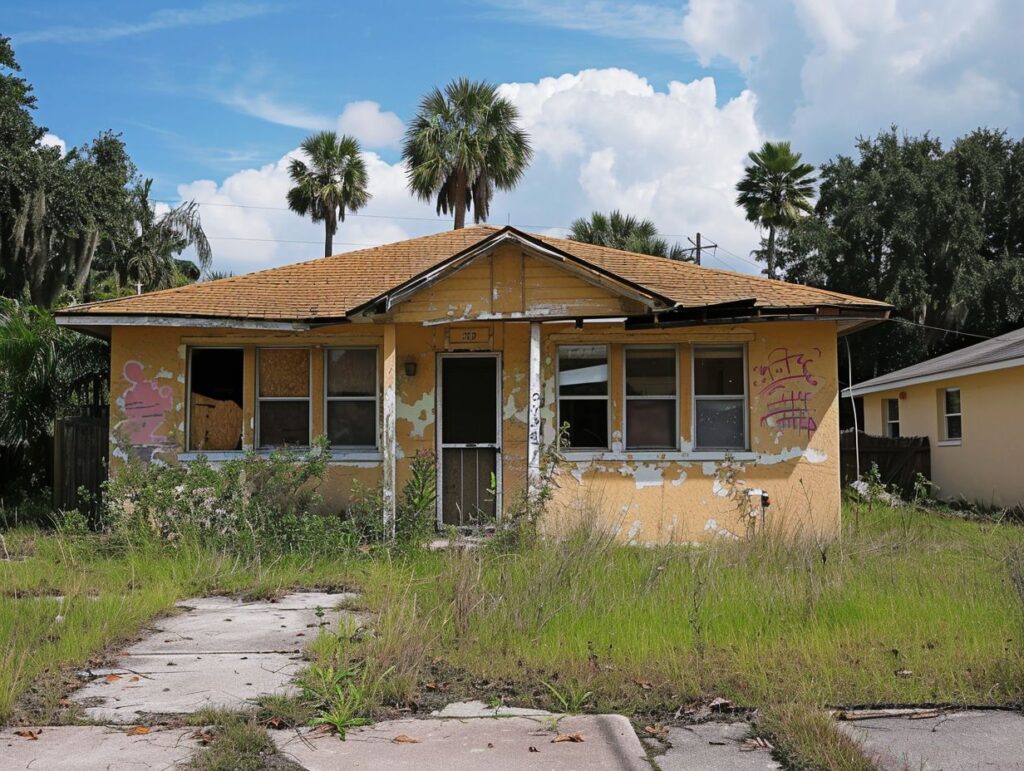Land use planning plays a crucial role in shaping the development and growth of communities in Florida. The process involves various steps and key players, from identifying goals and objectives to implementing plans. Challenges, such as balancing development with environmental conservation, exist.
This article explores the purpose, importance, benefits, and challenges of land use planning in Florida, along with the key laws and regulations that govern this process.
Let’s dive in!
Key Takeaways:

- Understand the purpose and importance of land use planning in Florida, including its benefits and challenges.
- Follow the five-step process for successful land use planning, including identifying goals and objectives, conducting a land use inventory, analyzing existing patterns, developing a plan, and implementing it.
- Be aware of the key players, such as local governments, state agencies, and community organizations, and the laws and regulations, such as the Florida Growth Management Act and the Florida Administrative Code, that govern land use planning in Florida.
What is the Process of Land Use Planning in Florida?

The land use planning process in Florida follows a structured sequence of steps that direct decision-making and land development to promote sustainable and coordinated growth.
Step 1: Identify Goals and Objectives
The initial step in the land use planning process is to establish clear goals and objectives, typically involving community engagement to align sustainable development priorities with public needs. This collaboration with the community helps to ensure that the established goals and objectives reflect local values and aspirations, fostering a sense of ownership and accountability.
By incorporating input from residents, businesses, and other stakeholders, planners can create a comprehensive plan that addresses the main challenges and opportunities within the area. These participatory processes not only improve the quality of decision-making but also encourage transparency and inclusivity, establishing a solid foundation for sustainable development practices in the future.
Step 2: Conduct a Land Use Inventory
Conducting a land use inventory involves the assessment of current land uses and natural resources, often utilizing data from sources like the Florida Natural Areas Inventory.
This process typically includes field surveys, remote sensing techniques, and Geographic Information Systems (GIS) to collect and analyze data on vegetation, water bodies, and land cover types.
Accurate data collection is crucial for effective land management and conservation efforts, ensuring that decisions are based on reliable information.
Organisations like the Florida Natural Areas Inventory play a significant role in maintaining up-to-date inventories and conducting research to support policy-making and land use planning. Their work helps protect valuable habitats, identify biodiversity hotspots, and inform sustainable development practices.
Step 3: Analyze Existing Land Use Patterns
The analysis of existing land use patterns is essential for comprehending the relationships among different land uses, urban design, infrastructure, and transportation options within a community.
Through the utilization of Geographic Information Systems (GIS) software, planners can overlay various data sets like population density, zoning regulations, and environmental features to extract insights into current land utilization. This analysis aids in the identification of areas with potential for growth, conservation, or redevelopment.
By scrutinizing the spatial distribution of residential, commercial, and industrial zones, planners can make well-informed decisions regarding future land use policies and development strategies. Understanding existing patterns also facilitates the improved integration of green spaces, transportation networks, and amenities, ultimately contributing to the creation of more sustainable and livable communities.
Step 4: Develop a Land Use Plan
The process of developing a land use plan involves creating a comprehensive planning document that outlines land use policies, promotes mixed-use development, and encourages compact development for sustainable growth.
Mixed-use development within a land use plan integrates various functions, such as residential, commercial, and recreational, in the same area, fostering a vibrant and dynamic community.
Compact development, on the other hand, focuses on efficient land use by minimizing sprawl and promoting higher-density development around transportation hubs. Comprehensive planning ensures that these principles are implemented cohesively, taking into account factors like infrastructure, environment, and social equity to create a well-rounded approach to land use policy.
Step 5: Implement the Plan
The implementation of the land use plan necessitates collaboration between local government authorities, adherence to development regulations, and the enforcement of zoning codes to direct land development activities.
Local government entities have a crucial role in ensuring that the objectives outlined in the land use plan are effectively carried out. They are tasked with overseeing the zoning codes and ensuring that developments adhere to the specified regulations. Regulatory compliance is crucial for upholding community aesthetics, conserving natural resources, and fostering sustainable growth.
Local governments enforce zoning codes through permit approvals, inspections, and penalties for violations, all geared towards upholding the integrity of land use planning. The efficacy of these enforcement measures is essential for the successful implementation of the land use plan and the achievement of the desired outcomes.
What are the Key Players in Land Use Planning in Florida?

Key stakeholders involved in land use planning in Florida comprise local governments, state agencies, and community organizations. They each have significant roles in influencing public policy and promoting sustainable development.
Local Governments
Local governments enact and enforce zoning codes, involving citizen planners in the decision-making process to ensure that land use policies align with community needs.
These zoning codes establish the acceptable land uses within specific zones, such as residential, commercial, and industrial. Compliance with these codes enables local governments to manage development systematically, safeguard natural resources, and enhance public health and safety.
Citizen planners, frequently community volunteers, contribute diverse perspectives and local insights to inform land use decisions. Their participation promotes transparency and inclusivity in the planning process, ultimately resulting in more sustainable and equitable development outcomes.
State Agencies
State agencies, like the Florida Fish and Wildlife Conservation Commission, enforce the Florida Growth Management Act and other regulations to ensure that land use planning across Florida is in line with environmental and sustainability objectives.
These agencies have a crucial role in supervising zoning laws, building codes, and conservation initiatives at the state level. By overseeing and ensuring adherence to land use policies, they help protect natural resources and preserve ecological stability.
State agencies work closely with local governments to manage development initiatives, meet community requirements, and encourage responsible land use practices that serve the interests of residents and the environment.
Community Organizations
Community organizations, like 1000 Friends of Florida, have a significant role in environmental and citizen advocacy, ensuring that land use policies prioritize sustainability and public interests. These organizations actively engage with local communities to raise awareness about the importance of sustainable land use practices.
Through educational campaigns, workshops, and collaborative initiatives, they give the power to residents to participate in decision-making processes related to land development and conservation. By fostering a sense of ownership and responsibility among citizens, these organizations amplify public voices and facilitate meaningful dialogue between stakeholders and policymakers.
One successful example of their advocacy efforts includes influencing the development of urban green spaces and promoting mixed-use zoning in urban planning to ensure a balanced approach to land use.
What are the Laws and Regulations for Land Use Planning in Florida?
The land use planning framework in Florida is governed by various laws and regulations, such as the Florida Land Use and Environmental Dispute Resolution Act and the Florida Administrative Code. These laws provide legal guidelines and advocacy mechanisms for resolving land use conflicts.
Florida Land Use and Environmental Dispute Resolution Act
The Florida Land Use and Environmental Dispute Resolution Act offers a structured process for resolving conflicts related to land use and environmental regulations. This process often involves public hearings and legal advocacy.
The Act’s objective is to streamline the resolution of disputes arising from issues like zoning regulations, development permits, and environmental compliance. It achieves this by establishing clear steps and timelines, which enhance transparency and accountability in decision-making processes.
Public hearings are essential in allowing stakeholders to express their concerns and viewpoints, promoting dialogue and consensus-building. Legal advocacy is crucial in ensuring that the rights of all parties are upheld and that decisions align with existing laws and regulations, thereby encouraging fair and just outcomes.
Florida Growth Management Act

The Florida Growth Management Act requires comprehensive planning to direct development and improve the quality of life throughout the state, ensuring that growth is handled in a sustainable and coordinated manner.
By establishing specific objectives, such as promoting efficient land use, safeguarding natural resources, and enhancing public facilities, the Act aims to create lively communities that offer a high quality of life. Through mandates like infrastructure planning and conservation strategies, it aims to strike a balance between economic development and environmental preservation.
The Act’s implementation impacts zoning regulations, transportation planning, and affordable housing options, all contributing to more sustainable growth patterns and increased resilience to challenges like population growth and climate change. The Act plays a central role in cultivating healthier, more livable environments for Florida’s residents.
Florida Administrative Code
The Florida Administrative Code covers a broad spectrum of development regulations that pertain to different aspects of land use planning, ranging from environmental protection to climate change mitigation.
These regulations are pivotal in ensuring that development activities conform to specific guidelines designed to safeguard natural resources and minimize the impact of urbanization on the environment.
By incorporating provisions for sustainable development practices like wetland preservation and coastal management, the code assists in protecting valuable ecosystems and wildlife habitats.
The integration of climate change adaptation measures within the regulations reflects the state’s dedication to addressing the issues posed by evolving environmental conditions and increasing sea levels in the era of global warming.
Frequently Asked Questions
What is land use planning and why is it important in Florida?
Land use planning is the process of determining how land in a specific area will be utilized for different purposes, such as residential, commercial, or recreational. In Florida, it is essential to have effective land use planning to balance economic growth and development with the preservation of natural resources.
Who is responsible for managing land use planning in Florida?
In Florida, the responsibility for land use planning falls on local governments, specifically county and city governments. Each county and city has its own comprehensive plan that outlines its land use goals and regulations.
What is a comprehensive plan and why is it important?
A comprehensive plan is a long-term guide for a community’s development and growth. It outlines future land use, transportation, infrastructure, and environmental goals and policies. It is important because it provides a framework for decision-making and helps maintain consistency and predictability in land use decisions.
What is the process for amending a comprehensive plan in Florida?
The process for amending a comprehensive plan in Florida varies depending on the specific county or city. However, generally, it involves public hearings, review and recommendations by local planning agencies, and final approval by the local governing body.
How can I stay informed and get involved in land use planning decisions in my community?
Local governments are required to provide opportunities for citizen input and participation in the land use planning process. You can attend public hearings, join citizen advisory committees, and provide feedback to your local officials. Additionally, most local governments have websites with information on upcoming land use decisions and how to get involved.
What are some potential challenges in land use planning in Florida?
Some potential challenges in land use planning in Florida include balancing development with the protection of natural resources, addressing population growth and urban sprawl, and addressing the impacts of climate change and sea level rise. It can also be difficult to balance the needs and desires of different stakeholders, such as developers, environmentalists, and local residents.























Rate this article:
Average rating 0 / 5. Vote count: 0
No votes so far! Be the first to rate this post.
No Comments yet!